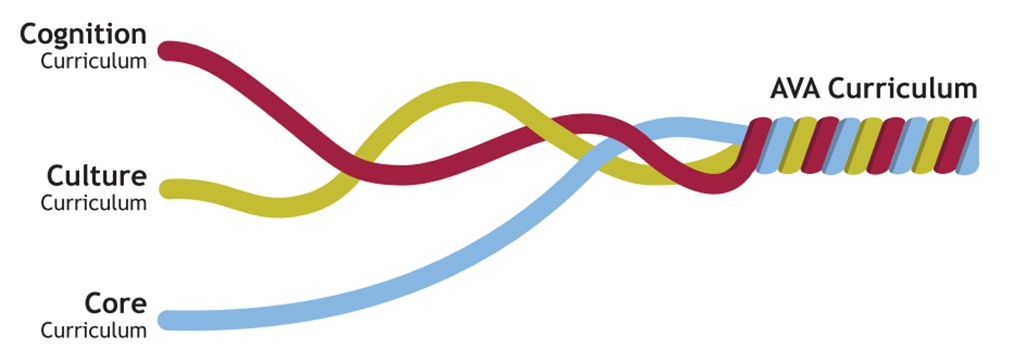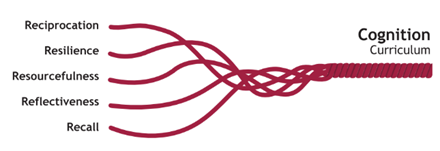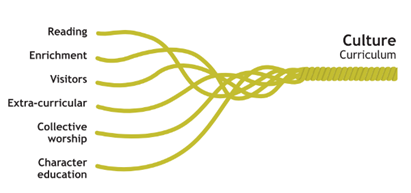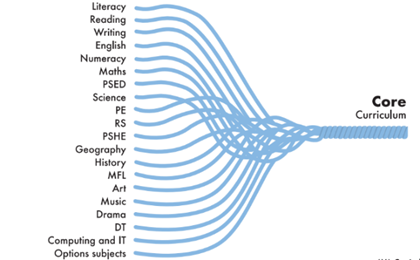
RELIGIOUS STUDIES
» The RS Team
» Curriculum Intent
The Religious Studies Team
Curriculum Leader
Ms K Hanmer - khanmer@theacademy.me
Teachers of Religious Studies
- Mrs A Mccalla
- Miss K Miller
Curriculum Intent

As a Church of England school, the teaching of Religious Education at Aylesbury Vale Academy is central to our curriculum. Our school is enriched by the diverse community in Aylesbury and we aim to provide a challenging and enriching curriculum for all students which reflects the diverse nature of belief in our school. The school values are Respect, Resilience and Aspiration and these values underpin all that we do as a Religious Education department. We respect all beliefs and worldviews, we aim to develop resilient learners who engage with challenging topics and respond well to feedback and we believe all students should aspire to be the best they can be.
Our department is one who embraces the Church of England’s vision that…
|
|
The ultimate worth of each person is grounded in being created in the image of God and in God’s love and compassion for each. |
|
|
- Church of England Vision for Education Deeply Christian, Serving the Common Good |
We hope to reflect this by through our teaching of Religious Education in a two-fold way. Firstly we recognise each student reflects the image of God and we inspire them to be the best they can be. Secondly through our teaching of different worldviews, religions, morality and the teachings of Jesus we hope to develop students who recognise that all people have worth and deserve respect and compassion. We are fully committed to providing a deep education of values, morals, religions and beliefs to enable students to understand and respect of all people in our society as individuals. But to also give them the framework to help them develop and articulate their own views about their belief system.
Cognition Curriculum

The Bible verse which underpins our department’s ethos is our Bible quote on the value aspiration.‘…real and eternal life, more and better life than they ever dreamed of’ John 10:10. For our students to have life in all its fullness we believe RS should help students develop their critical thinking skills and to consider their own responses to ultimate questions of meaning, purpose and value. We believe in helping students develop their own worldview, understand others and become able to discuss difference (and recognise commonality) respectfully and meaningfully.
We use the Cognition Curriculum to develop this by providing plenty of opportunity for reflection in lessons, when learning about the Prophet Muhammad in Year 7 we consider how important his teachings are today, we use the ‘Human Rights’ lessons in Year 11 to help students reflect on inequalities in the world. We develop reciprocation through discussion and debates and resourcefulness when it comes to reading Sacred texts and homework. Resilience and recall are fundamental to GCSE RS where we utilise a range of recall strategies to secure excellent outcomes at GCSE.
Culture Curriculum
 In RS we contribute to the culture curriculum in a variety of ways. Through Personal Development we develop character by studying ethics and discussing morals and ethical ideas and dilemmas with students. Through studying ethics and philosophy we give student cultural capital and a range of lens through how to see the world. We offer RS club and Christian Union as part of the extended schools. We work closely with religious groups, places of worship and communities in the area to provide guest speakers and trip. We enable students to take part in collective worship through facilitating a prayer space.
In RS we contribute to the culture curriculum in a variety of ways. Through Personal Development we develop character by studying ethics and discussing morals and ethical ideas and dilemmas with students. Through studying ethics and philosophy we give student cultural capital and a range of lens through how to see the world. We offer RS club and Christian Union as part of the extended schools. We work closely with religious groups, places of worship and communities in the area to provide guest speakers and trip. We enable students to take part in collective worship through facilitating a prayer space.
Core Curriculum
 We comply with the Statement of Entitlement for the teaching of Religious Education by following The Buckinghamshire Agreed Syllabus for Religious Education 2022-2027.
We comply with the Statement of Entitlement for the teaching of Religious Education by following The Buckinghamshire Agreed Syllabus for Religious Education 2022-2027.
Key Stage Three
In KS3 the rationale is to study a range of beliefs and then explore how these beliefs impact religious believers. In Year 7 students study the concept of covenant through the three monotheistic religions of Judaism, Christianity and Islam, students then look at religious art to examine how religious believers express their faiths. We recognise Christianity is a diverse world tradition and look at different denominations and practices.
We also explore how this concept of covenant is lived out in religious believers’ lives, for example students look at this through the lens of the five pillars and help it helps a Muslim to remember God. Through understanding the synagogue and Jewish food laws to truly understand how they keep to their covenant and exploring the way Christians live out their faith through worship, baptism and festivals.
In Year 8 students study Philosophy of Religion, the dharmic traditions of Buddhism and Sikhism, and sacred places around the world. Christian theology and diversity is woven into these topics, for example we consider Christian theodices in ‘The Problem of Evil’, Bible teachings when studying religion and science, and when studying ‘What makes a place sacred?’ we study Ethiopian Churches, the significance of Jerusalem, and how believers live out their faiths in the Camino de Santiago.
Key Stage Four
Religious Education is compulsory for all students at KS4, all students study Religious Studies Short Course, we choose to study the religions Christianity and Buddhism. To supplement lessons, students receive further Religious Education in Personal Development where we study ethical issues like abortion and euthanasia. The curriculum is also taught through guest speakers, drop down mornings and throughout the school curriculum. Students can opt to study GCSE Full Course Religious Studies, we study both Christianity and Islam in this.
Lessons are planned and delivered in a variety of ways so that all children can participate fully. Interactive, practical activities linked to the themes in the syllabus and other subjects where appropriate, we encourage our pupils to discuss their ideas and extend their understanding of difficult concepts and challenging questions.
Key Stage Five
All students have the option to study OCR A Level Religious Studies, we study Developments in Christian Thought, Philosophy and Ethics. Every student in KS5 despite not choosing to do A Level also receives Religious Education as part of the Personal Development programme.
